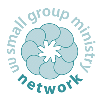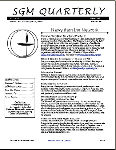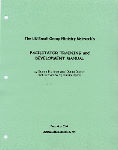My membership and leadership in Branches is a vital part of my life. The gifts I receive are endless and I am graced at every encounter.
I am member and co-leader to Branches 12 and 20. This allows me 2 hours, twice monthly, to meet with, and share with people who are unique and valued in a church community that I love. We are not like minded , but we agree to meet, talk, and listen to each other. We listen with love and respect, never feeling we need to fix or solve. Just listen and share and in so doing, we impact each other. We agree to be present, sharing in this process of being in community together and working on our relationships with each other. We covenant to share our joys and concerns, our dreams and fears, our thoughts and feelings. We support each other as we meet life's challenges, and we care.
My commitment to Branches 12 & 20 is no less important to me than my commitment to the church. It is one and the same. I make attendance a priority and I honor the relationships that have developed. I am grateful for the safety of the space we share, and I look forward to being in that space every month. It is by far the easiest gift I give to the church with a return that is un-equaled.












 HEART TO HEART: Fourteen Gatherings for Reflection and Sharing, April 2009
HEART TO HEART: Fourteen Gatherings for Reflection and Sharing, April 2009